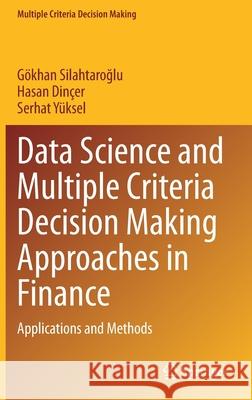Data Science and Multiple Criteria Decision Making Approaches in Finance: Applications and Methods » książka
topmenu
Data Science and Multiple Criteria Decision Making Approaches in Finance: Applications and Methods
ISBN-13: 9783030741754 / Angielski / Twarda / 2021 / 173 str.
Kategorie:
Kategorie BISAC:
Wydawca:
Springer
Seria wydawnicza:
Język:
Angielski
ISBN-13:
9783030741754
Rok wydania:
2021
Wydanie:
2021
Numer serii:
000781143
Ilość stron:
173
Waga:
0.45 kg
Wymiary:
23.39 x 15.6 x 1.27
Oprawa:
Twarda
Wolumenów:
01
Dodatkowe informacje:
Wydanie ilustrowane











